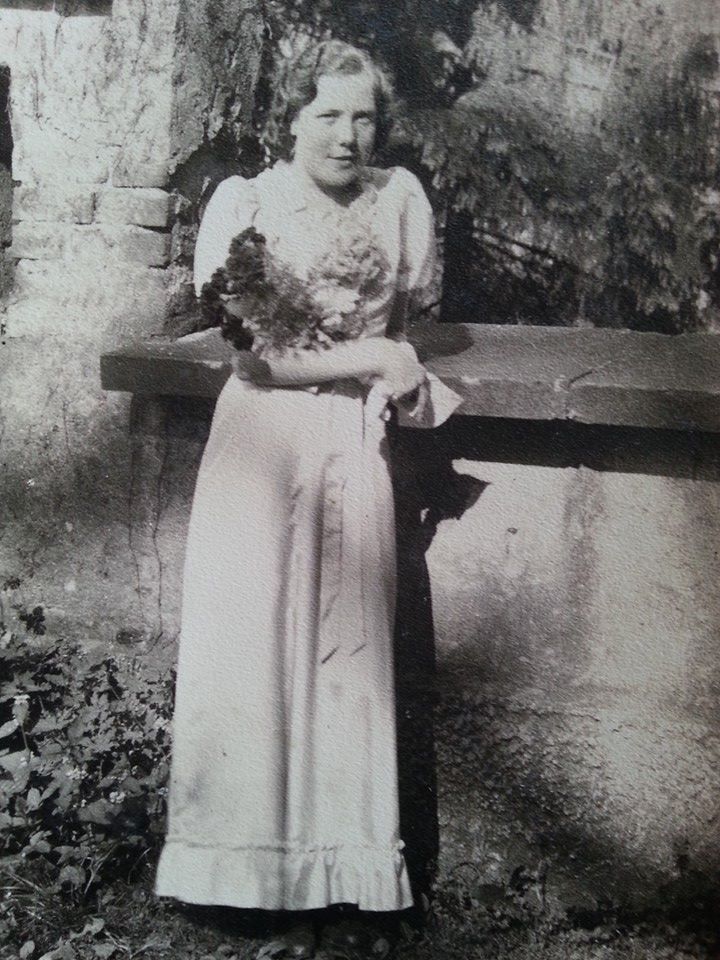I’m always stunned how some Germans who supported the rise of Hitler maintain a naivete about their role in the horrors, even in retrospect. The denial of culpability runs so deep.
An AMA at Reddit with an unnamed 92-year-old woman (aided by her grandson) who’s spent her entire life in Stuttgart falls into this category, and it’s a fascinating discussion. “We were normal people who did not want to harm anyone,” she says of the Germans who pledged allegiance to Nazism, yet so many were hurt, so many killed. The collective delusion that allowed for such atrocities has never fully lifted. A few exchanges below.
_________________________
Question:
During Hitler’s rise to power before the war in 1933, did all Germans, including yourself, love him? I mean, he did bring back Germany’s lost honour and economy from World War I. When did the general mood toward Hitler change? What did he do? Did you support him during the war?
Answer:
Everybody was enthusiastic about Adolf, nobody hated him or anything like that. That did not change until the end. I don’t know, I was a young girl. We were young and naive.
_________________________
Question:
Did you ever see Hitler himself? At a rally or such?
Answer:
Yes at Obersalzberg I stood right beside him and when he visited the “Hitlerjugend” in Berchtesgaden (Upper Bavaria) I saw him again.
_________________________
Question:
What did you think of the SS?
Answer:
Of course: the elite. They were attractive men and every girl adored them. They were tall and sportive and good-mannered and their uniforms were great. (Grandson: I asked her if they heard bad things about the SS. She shook her head.)
_________________________
Question:
Looking back, what was the most shocking thing you experienced in the time of Nazi Germany?
Answer:
In the “Hindenburg-Bau” (a building in Stuttgart), there was a dance-cafe every Sunday. I was there many times with my friends. There was a musician who played his guitar singing: “Es geht alles vorüber, es geht alles vorbei, auch Adolf Hitler und seine scheiß Partei.” (Translation: “Everything, everything will come to an end. So will Adolf Hitler and his crappy party NSDAP.”) There was a table with officers in the cafe, one of them stood up, pulled out his gun and shot the musician in his breast. He was instantly dead and they pulled his dead body out of the cafe. That was very horrible.
_________________________
Question:
Are there any popular misconceptions about what average people were like in Nazi Germany? Was there some kind of normalcy and optimism around daily life, or was there a encroaching sense of dread regarding the horrendous things happening in Germany and abroad?
Answer:
We were normal people who did not want to harm anyone. Everybody was optimistic in terms of the war. There was a daily dose of fear, because so many men we knew were at war and we never knew if a bomb would hit the house. We stayed in the cellar and begged that we would survive.
_________________________
Question:
What was, if any, the punishment for knowing you lived around Jewish families but not declaring that to the government?
Answer:
We didn’t know of anyone who hid Jews. But if anyone did, they would have had bad times. There was a Jew named Arnold, who owned a nearby [factory], he was a good man. He gave anyone asking him work and paid his workers well. He never let anyone down. (Grandson: I asked her if they took him away. “Yes they came and arrested him.”)
_________________________
Question:
Did you see the trains filled with Jews or shops that were owned by Jews after Krystalnacht?
Answer:
No, I don’t know. They were arrested, but we didn’t know where they brought them or what happened to them at that time.
_________________________
Question:
Propaganda was undoubtedly used throughout the war. Was she and her colleagues, friends or family aware of what was propaganda/true/untrue? Was it even discussed at all at the time? I’m guessing it would be dangerous to do so, but that probably didn’t stop it being discussed completely.
Answer:
Yes we discussed a lot, but I don’t remember if anyone said that all the propaganda is false. They would not have been allowed to. Hitlerjugend and BDM were strong organisations, there was no chance for going against common beliefs.
_________________________
Question:
When did you realize Germany hadn’t a chance to win the war?
Answer:
We always believed in the victory. Even after Stalingrad. Absolutely.
_________________________
Question:
How do you feel about the trial of Oskar Groening? He is 93 and on trial for working at Auschwitz as a bookkeeper/accountant.
Answer:
Insane. You cannot judge anyone 70 years later. Life is hard enough at 93. They cannot imagine how hard. I bet he regrets the things he has done or had to do without a trial.
_________________________
Question:
Thinking back, does anything about the tense climate in today’s political scene remind you of anything that happened before the war broke out?
Answer:
We only get to know what happens in the world after it happened. We have no influence on the things happening and we have to rely on those men and women who do.•

